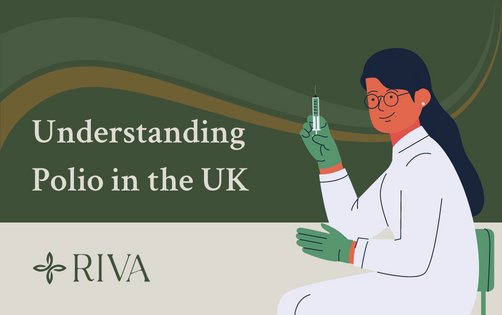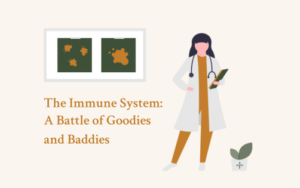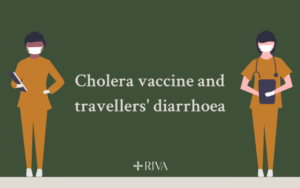What is polio?
Polio, also known as poliomyelitis, is a highly contagious virus that mainly affects young children. The virus is spread by direct contact with an infected person or through food or water contaminated by infected human faeces. The virus infects the human gastrointestinal tract and from there can spread to the central nervous system, potentially causing long-lasting paralysis and even death in some cases.
What are the symptoms of polio?
The majority of people who acquire polio will remain symptom-free. When symptoms do occur they can range from mild flu-like symptoms, such as fever and fatigue, to symptoms of meningitis or paralysis. Paralysis, although rare, occurring in less than 1% of cases, can be long-lasting. Symptomless individuals can spread the virus to thousands of others before the first case of polio paralysis emerges.
History of polio
In the 1940s and ‘50s, polio was a major public health threat in the UK. Outbreaks of the disease led to thousands of cases and there were no effective treatments available. In response, the government set up a national immunisation programme in 1956, with the aim of protecting all children under the age of 15 from the virus.
The last indigenous (wild) case of polio in the Uk was reported in 1984 and the country, along with Europe was officially declared polio-free in 2003. This is due to the success of the vaccination programme.
Polio Vaccination
The polio vaccine is part of the routine childhood vaccination schedule given, as part of a combined vaccine, to babies, toddlers and teenagers.
The polio vaccine is given to children at:
- 8, 12 and 16 weeks old as part of the 6-in-1 (DTaP/ IPV/ Hib/ HepB) vaccine.
- 3 years, 4 months old as part of the 4-in-1 (DTaP/ IPV) pre-school booster.
- 14 years old as part of the 3-in-1 (Td/ IPV) teenage booster.
You require all 5 of these vaccinations in order to be fully vaccinated against polio and have good long-term protection. However, if you are travelling to a country considered high risk for poliovirus, or to a country that is experiencing an outbreak, you may need a booster dose of polio-containing vaccine if it has been more than 10 years since your previous dose.
Is polio back in the UK?
On 22nd of June 2022, the UK Health Security Agency (UKHSA) reported that poliovirus had been detected during routine checks of sewage in North and East London and there are indications that the virus is spreading between people, but no cases of paralysis have been reported. The risk to the general population remains low as the majority of the population are fully vaccinated, but those who are not fully vaccinated or those that do not respond well to vaccines could be at risk of catching polio.
It is normal for vaccine-derived poliovirus strains to be detected in routine sewage tests, as someone who has been given the live oral polio vaccine (OPV) overseas, and then comes to the UK, can shed traces of the vaccine-derived poliovirus in their faeces for a number of weeks. The detection of vaccine-derived poliovirus in London highlights the importance of being fully vaccinated in order to protect against polio.
Recommendations for children in London
In an effort to protect young children and to stem the spread of the virus, public health experts are recommending that all children aged 1- 9 years in London, are offered a dose of the polio vaccine as part of the incident response. This will either be a top-up dose in children that are up to date with their routine vaccinations or a catch-up dose. Children in this age range are not fully vaccinated and this offers them increased protection during the outbreak.
The findings in London reiterate the importance of keeping up to date with childhood vaccines and illustrates the continued risk that polio poses globally, especially in countries with insufficiently vaccinated populations.
How can RIVA help?
At RIVA we understand the importance of continual professional development. Our nationwide pre-bookable courses help you and your team to stay up-to-date with mandatory immunisation training, ensuring you are delivering the best for your patients. Our courses are suitable for all qualified healthcare professionals who provide vaccinations, vaccination support, or travel health-related services. If you have any questions about our training courses or would like more information about any of our specialisms we’ll happily respond within 48 hours.





